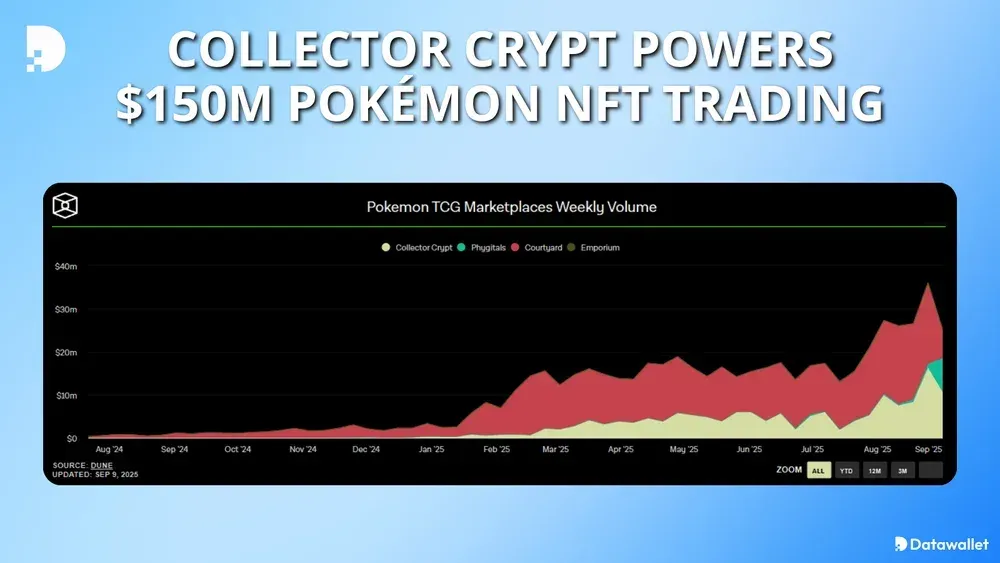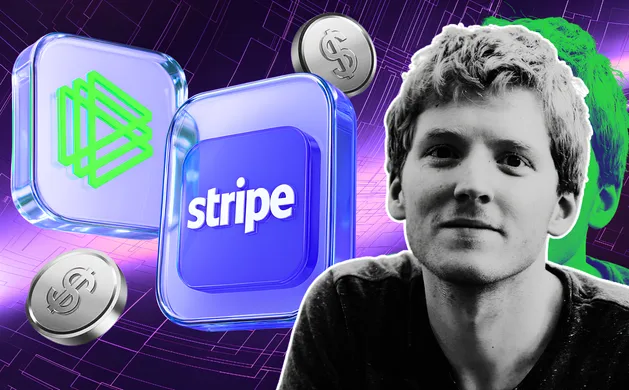Upbit Launches "GIWA" Ethereum Layer 2 Blockchain

GM. Upbit has launched GIWA, an Ethereum Layer 2 on Optimism’s OP Stack, placing South Korea’s largest exchange at the center of Web3 infrastructure.
Meanwhile, a massive NPM supply-chain attack was contained with minimal losses, OpenSea enters the final phase before its $SEA launch, and BBVA expands crypto services using Ripple.
Exchanges, security, and banks are setting today’s agenda. 👇
Upbit Launches "GIWA" Ethereum Layer 2 Blockchain
Upbit, South Korea’s largest crypto exchange, confirmed on Tuesday the launch of GIWA, an Ethereum Layer 2 built on Optimism’s OP Stack. The announcement followed August trademark filings, with a Sepolia testnet now live and a GIWA wallet application under development.
Dunamu CEO Oh Kyung-seok unveiled the project at the Upbit Developer Conference, framing it as Korea’s bid for global infrastructure leadership. Company officials emphasized GIWA would attract domestic developers to Web3 and prevent the Korean market from remaining sidelined internationally.
GIWA delivers one-second block times using Optimistic Rollups, with features including privacy options, liquidity verified by Upbit, and stablecoin integrations. However, analysts flagged its reliance on a centralized sequencer, raising concerns over transaction ordering, exchange dominance, and potential maximal extractable value capture.
Korean regulators are expected to scrutinize GIWA, as reports suggest exchange-operated Layer 2s may effectively act as trading venues. Analysts argue Upbit’s massive liquidity and user base provide rare advantages, calling GIWA the firm’s most realistic diversification play after earlier failed expansion efforts.
NPM Crypto Supply-Chain Attack Contained Quickly
Ledger CTO Charles Guillemet said a massive NPM supply-chain attack on crypto users was contained quickly. Hackers compromised developer credentials via phishing, pushing malicious packages designed to redirect transactions across Ethereum, Solana, and other chains. Implementation flaws exposed the breach quickly, limiting stolen funds to $503 before broader industry detection halted the spread.
Major platforms, including Uniswap, Aave, MetaMask, and Trezor, confirmed operations remained unaffected following the attempted intrusion. Security groups stressed the outcome was fortunate, noting compromised packages had billions of weekly downloads. Experts warned supply-chain attacks remain a major threat, blending onchain exploits with open-source to evade early detection across crypto projects.
OpenSea Enters Final Phase Before SEA Token Launch
NFT marketplace OpenSea announced that it entered the final phase of rewards ahead of its SEA token release. Officials confirmed details of the long-anticipated token generation event would arrive in early October, nearly twelve months post-announcement. The update coincided with OpenSea’s new mobile app, which integrates AI tools for faster, smarter NFT trading.
The SEA token reward phase centers around treasure chests that contain NFTs from collections like Bored Apes. CMO Adam Hollander said historical activity would also earn separate SEA allocations during token distribution. The platform emphasized that upcoming details will highlight both community rewards and the roadmap toward official token circulation.
BBVA Expands Crypto Service With Ripple Custody
Spanish bank BBVA revealed it will use Ripple’s custody technology to support its retail crypto expansion. Ripple Custody provides institutional-grade self-custody infrastructure, enabling BBVA to directly manage client Bitcoin and Ethereum assets securely. Executives said the partnership builds on prior collaborations in Switzerland and Turkey, extending services under Europe’s MiCA regulation.
BBVA Head of Digital Assets Francisco Maroto said the program enables end-to-end security and compliance for retail customers. Ripple executives emphasized that banks are increasingly launching digital asset offerings in response to customer demand across Europe. The initiative highlights Ripple’s growing role in custody markets while BBVA deepens its involvement in regulated digital finance.
Data of the Day
Solana-native platform Collector Crypt reported that it facilitated $150 million in Pokémon card trading volume year-to-date. The marketplace tokenizes graded Pokémon cards as redeemable NFTs and offers gamified randomized “Gacha” pack purchases. Users also benefit from instant liquidity through onchain buyback quotes pegged to real-time indexed market valuations.
Trading surged this summer, averaging $10 million weekly, alongside growing CARDS token adoption, which was launched in late August. CARDS’ fully diluted valuation jumped from $67 million to $600 million within a week of issuance. Analysts said the project blends collectibles, liquidity, and gamification, fueling strong crossover appeal between crypto-native investors and Pokémon collectors.

More Breaking News
- SharpLink Gaming kicked off its $1.5 billion stock buyback, acquiring $15 million in SBET shares as Ethereum holdings surpass $3.6 billion value.
- The first US Dogecoin ETF (DOJE) will debut on Thursday, marking a speculative milestone for memecoin investing despite lacking any formal utility or function.
- Worldcoin’s WLD token surged over 80% after Eightco launched a $250 million treasury backed by top investors including Kraken, GSR, and BitMine.
- Hyperliquid broke its all-time high as Paxos, Frax, and Agora submitted competing proposals to issue a USDH-aligned stablecoin with shared protocol revenue.
- Binance added Ethena’s USDe stablecoin platform-wide, enabling yield on deposits and futures margin collateral while challenging USDT’s long-standing dominance in trading.
- Putin’s top adviser accused the US of using stablecoins and gold to devalue $37 trillion debt, comparing it to historical dollar resets.
- Nasdaq agreed to buy $50 million in Gemini shares during its IPO, expanding strategic ties between traditional finance and regulated crypto custody.
For the latest updates on digital asset markets, follow us on X @Datawalletcom.
.webp)
Written by
Jed Barker
Editor-in-Chief
Jed, a digital asset analyst since 2015, founded Datawallet to simplify crypto and decentralized finance. His background includes research roles in leading publications and a venture firm, reflecting his commitment to making complex financial concepts accessible.







